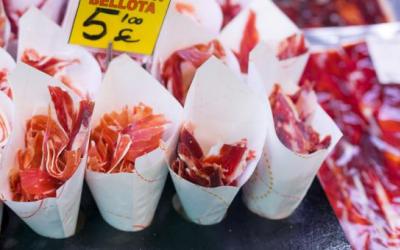The Egg Crisis in Norway: Causes and Consequences

Causes of the crisis
The main reason for the egg shortage in Norway is the poor forecasting of supply and demand, which is carried out by the Nortura cooperative. This cooperative, representing the interests of local poultry farmers, is responsible for assessing market needs and organizing supplies. This year, as in previous years, the forecasts were inaccurate, and production volumes were unable to meet the growing demand.
In addition, problems with egg supplies may be related to changes in climate conditions, which affect the productivity of poultry farms. Norway, like many other countries, is facing the effects of climate change, which may lead to a decrease in production.
Imports as a solution
In the face of a shortage of local eggs, Norwegian supermarkets are starting to consider imports as a possible solution. As a representative of one of the supermarket chains told the Aftenposten newspaper, "usually we only sell Norwegian products and only sell foreign products when there is a need. This time we will have to use imports from Denmark."
However, it is worth noting that Norway is not a member of the European Union and applies its own sanitary and customs regulations. This creates additional challenges for imports, especially for food products. For example, imports of potatoes into the country are completely banned, and strict requirements apply to eggs to prevent the spread of salmonella .
Sanitation and safety
The Norwegian Food Safety Authority (Mattilsynet) works hard to ensure that products entering the market are safe. Recent assessments have shown that eggs from farms in other Nordic countries, such as Denmark and Sweden, can be considered as safe as those from Norway. This decision could significantly ease the supply situation and help meet growing demand.
Consequences for consumers The egg
crisis has already affected consumers. Stores are seeing empty shelves, and egg prices may rise due to shortages. In addition, this situation creates additional challenges for restaurants and cafes, where eggs are an important ingredient in many dishes.
The egg crisis in Norway highlights the importance of effective forecasting and supply management in the agricultural sector. Given the current challenges, it is necessary to look for new ways to ensure market stability, including possible expansion of imports and improvement of local production. In the long term, this will not only help prevent similar crises, but also strengthen the country's food security.
Source:
Read together with it:
- С января по июль экспорт свинины из ЕС вырос на 1,6%На втором месте оказались Нидерланды с объёмом экспорта в 392 000 тонн. Дания экспортировала свинину в третьи страны с объёмом в 308 000 тонн, что примерно на 13% меньше, чем в предыдущем году. Германия экспортировала 180 000 тонн, что на 18% меньше, чем годом ранее. Это было обусловлено, главным образом, дополнительными ограничениями на экспорт, вызванными вспышкой ящура в начале года. Помимо зап...
- В Кремле пообещали ответ на санкции сообразно интересам РоссииДмитрий Песков В Кремле начали анализировать введенные санкции для разработки ответных мер, заявил пресс-секретарь президента России Дмитрий Песков, передает корреспондент РБК. «В настоящий момент анализируются те санкции, которые определены. Будем делать то, что наилучшим образом соответствует нашим интересам», — сообщил Песков, отвечая на вопрос об ответных мерах России. 19-й пакет санкции Еврос...
- Zakharova promised "tough steps" in response to the 19th EU sanctions package.Maria Zakharova RUSSIA will respond harshly to the latest round of EU sanctions, Russian Foreign Ministry spokesperson Maria Zakharova stated on TELEGRAM . The EU previously adopted the 19th package of anti-Russian sanctions, which included a ban on the import of Russian LNG, new restrictions on oil companies, ships, banks, and the EXPORT of certain goods, as well as restrictions on the movement o...
- Производство яиц растёт в Липецкой областиЗа девять месяцев 2025 года в хозяйствах всех категорий региона получено 702,4 млн яиц. Это на 8 % больше, чем за аналогичный период прошлого года. Основным производителем и поставщиком пищевого куриного яйца в Липецкой области является сельхозпредприятие, две площадки которого расположены в Липецком округе и Грязинском районе. В день там получают порядка 1,6 млн штук яиц. За три квартала текущего...
- Increasing egg production of laying hens in Kabardino-Balkaria: successes and prospectsThe increase in chicken population has been a key factor in this growth. Currently, the total number of laying hens in the republic has reached 2.3 million, a 14% increase over last year. This demonstrates that local farmers are actively expanding their farms by implementing modern technologies and poultry care methods. The main reasons for increased egg production include: Improved feeding: Farme...
- Rostov wholesaler Everest is merging with a loss-making meat supplier from Donetsk.Donskie Traditsii, a wholesale MEAT supplier operating in Donetsk since 2017, saw its revenue decline by 28% in 2024 , to 273.1 million rubles, while losses narrowed from 14.4 million rubles in 2023 to 5.3 million rubles. In contrast, Everest increased its revenue by 16% to 3.6 billion rubles in 2024, although net profit declined by 24%, to 11.9 million rubles. Creditors of Donskie Traditsii can f...





























































